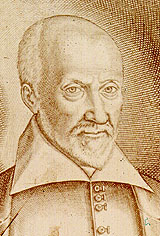A Quote by Seneca the Younger
He who boasts of his pedigree praises that which does not belong to him.
Related Quotes
Man is more than his environment. It is from the innate quality of the Spirit in him, his inner storehouse, that he draws those ideas, his intuitions, which unify his perceptions of the external world instantaneously with a value which is qualitative and not quantitative, and which he embodies in the works of his culture - those achievements which belong not only to one particular time but to all times, and mark the path of his upward progress.
He that boasts of his ancestors confesses that he has no virtue of his own. No person ever lived for our honor; nor ought that to be reputed ours, which was long before we had a being; for what advantage can it be to a blind man to know that his parents had good eyes? Does he see one whit the better?
Socialism is the doctrine that man has no right to exist for his own sake, that his life and his work do not belong to him, but belong to society, that the only justification of his existence is his service to society, and that society may dispose of him in any way it pleases for the sake of whatever it deems to be its own tribal, collective good.
The wisdom of the Lord is infinite as are also His glory and His power. Ye heavens, sing His praises; sun, moon, and planets, glorify Him in your ineffable language! Praise Him, celestial harmonies, and all ye who can comprehend them! And thou, my soul, praise thy Creator! It is by Him and in Him that all exist.
We thank Him less by words than by the serene happiness of silent acceptance. It is our emptiness in the presence of His reality, our silence in the presence of His infinitely rich silence, our joy in the bosom of the serene darkness in which His light holds us absorbed, it is all this that praises Him.
The pitch to which he was aroused was tremendous. All the fighting blood of his breed was up in him and surging through him. This was living., though he did not know it. He was realizing his own meaning in the world; he was doing that for which he was made.... He was justifying his existence, than which life can do no greater; for life achieves its summit when it does to the uttermost that which it was equipped to do.
What a man does, that he has. What has he to do with hope or fear? In himself is his might. Let him regard no good as solid but that which is in his nature, and which must grow out of him as long as he exists. The goods of fortune may come and go like summer leaves; let him scatter them on every wind as the momentary signs of his infinite productiveness.





































